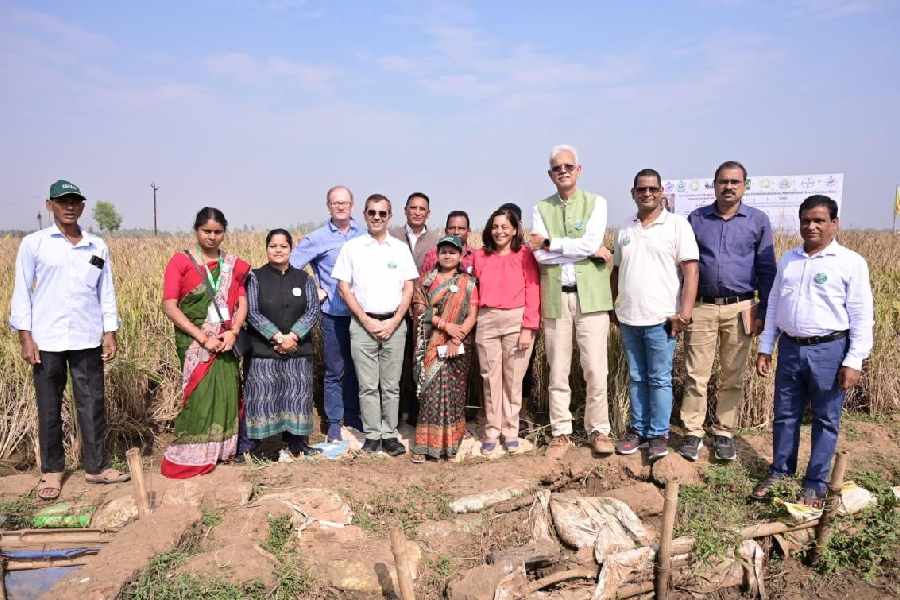Yvonne Pinto, director-general of the International Rice Research Institute (IRRI), recently visited mechanised direct seeded rice (mech-DSR) clusters in Puri. Mech-DSR is a rice production method that involves sowing seeds directly into the field rather than growing seedlings in a nursery and transplanting them later in the field.
During her visit, Dr Pinto engaged in in-depth interactions with a wide range of stakeholders, including farmers, service providers and strategic partners. Over 100 participants, including 23 women farmers, attended the event, representing diverse groups such as farmers, service providers, agriculture officials, KVK ( Krishi Vigyan Kendra) scientists, NGO partners, private companies, project staff and the media.
The DG-IRRI visited three mech-DSR clusters — Danpur, Ramchandrapur and Sujanpur — in Delang block in Puri district.
At the Danpur cluster, she interacted with the lead farmer Bikram Parida. She held a discussion with stakeholders and discussed the challenges, benefits and future opportunities related to mech-DSR systems in Odisha. “The stakeholders were keenly interested in hearing Dr Pinto’s vision for agricultural development, particularly regarding the mechanised DSR-based system in Odisha,” said Dr Ashok Kumar, the DSR-Odisha project coordinator.
Pinto visited stalls showcasing essential farm machinery for mech-DSR, including multi-crop planters, power weeders and sprayers. She also visited displays on herbicides, herbicide-tolerant rice and IRRI-Government of Odisha-DSR-Odisha project publications, as well as standees highlighting the project’s interventions, insights and impacts.
She assured the stakeholders that the IRRI would explore all possibilities in coordination with the government of Odisha to meet the needs of the farmers in Odisha.
She was accompanied by Dr Virender Kumar, interim research director and head of the sustainable impact department and Dr Sudhanshu Singh, director of the IRRI South Asia Regional Centre (ISARC).











